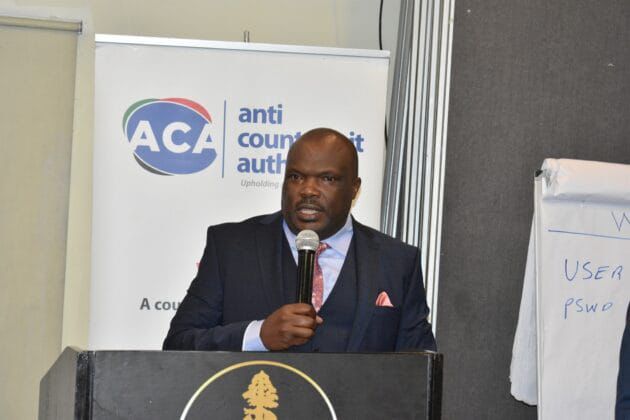
Time to Rethink the War on Counterfeits — Beyond Brute Force » Capital News
By Dr. Robi Mbugua Njoroge
The world marked the Anti-Counterfeit Day on Friday, June 6, reminding us of the timeless wisdom of an African proverb: “A man who uses force is afraid of reasoning.” This truth is particularly relevant in the fight against counterfeit trade, where enforcement agencies are often tempted to rely solely on brute force. Yet if we are to succeed, we must also examine the deeper structural forces sustaining this shadow economy.
Counterfeiting is not just a violation of intellectual property or a breach of trade ethics—it is a reflection of the inequities embedded in our economy. According to the 2024 Consumer-Level Survey by the Anti-Counterfeit Authority, 42.5% of consumers knowingly purchase counterfeit goods because they are cheaper, while 33.75% cite ease of access. These choices are not made in ignorance; they are rational responses in a system where survival often takes precedence over standards.
Let us confront the uncomfortable truth: the counterfeit economy thrives where the formal market fails to deliver with fairness and reach. It dominates informal markets, flourishes on digital platforms, and seeps into rural economies—not because consumers support illegality, but because legitimate alternatives are unaffordable or inaccessible.
And these are not harmless imitations of designer brands or pirated films. The data shows a worrying trend: 89.28% of consumers report encountering fake pharmaceuticals, 89.16% identify counterfeit agricultural inputs, and 81.89% point to fake automotive parts. These aren’t just illegal—they are life-threatening, undermining health, food security, and road safety. They compromise national productivity and rob Kenyans of their right to quality goods.
The supply chains for these goods are just as telling. Street vendors account for 59.37% of access points, kiosks for 54.42%, and online platforms for 31.27%. Even supermarkets—traditionally trusted spaces—are implicated in 21.31% of reported cases. The line between formal and informal retail is fading, signalling how deeply counterfeit trade is embedded in our economy.
If we are to dismantle this parallel system, we must move from blame to systemic reform. Counterfeiters exploit not just regulatory gaps, but economic realities—where cost and convenience outweigh legality. The sustainable solution is not just punishment, but making authentic goods more affordable and accessible to all Kenyans.
This can be achieved through policy support for local manufacturing, lowering input costs, and extending legitimate distribution networks into underserved areas. Targeted subsidies on essential, locally made goods can give the formal sector a competitive edge over the counterfeit trade.
Equally important is investing in smart verification tools—QR codes, mobile authentication platforms, and blockchain traceability systems—that empower consumers to verify product authenticity through a simple scan or SMS. But these tools must be affordable and accessible to small businesses and local producers to drive widespread adoption.
Still, technology alone will not suffice. The counterfeit economy is not merely born of ignorance—it is the offspring of inequality. Raids and seizures, while necessary, are not enough. This challenge demands a whole-of-society approach that addresses economic disparity, retools the informal sector, and educates consumers not just about the risks of counterfeits, but about their right—and power—to demand better.
As we chart a way forward, let us remember: effective leadership is rooted in insight, not just action. Insight begins with listening—listening to the data, the consumer, the small trader, and the local manufacturer who competes against unfair odds. We must not simply criminalise the counterfeit economy—we must replace it with one that is more just, more inclusive, and more trusted.
At the Anti-Counterfeit Authority, we are not merely enforcers. We are custodians of public trust. Our mission goes beyond seizures and crackdowns. We are here to rebuild confidence in markets, safeguard innovation, and protect the mwananchi from exploitation. That is our commitment. And we must act—not with fear, but with reasoned courage.
Because, as African wisdom reminds us: “When the roots are deep, there is no reason to fear the wind.”
Dr. Robi Mbugua Njoroge is the Executive Director of the Anti-Counterfeit Authority (ACA).